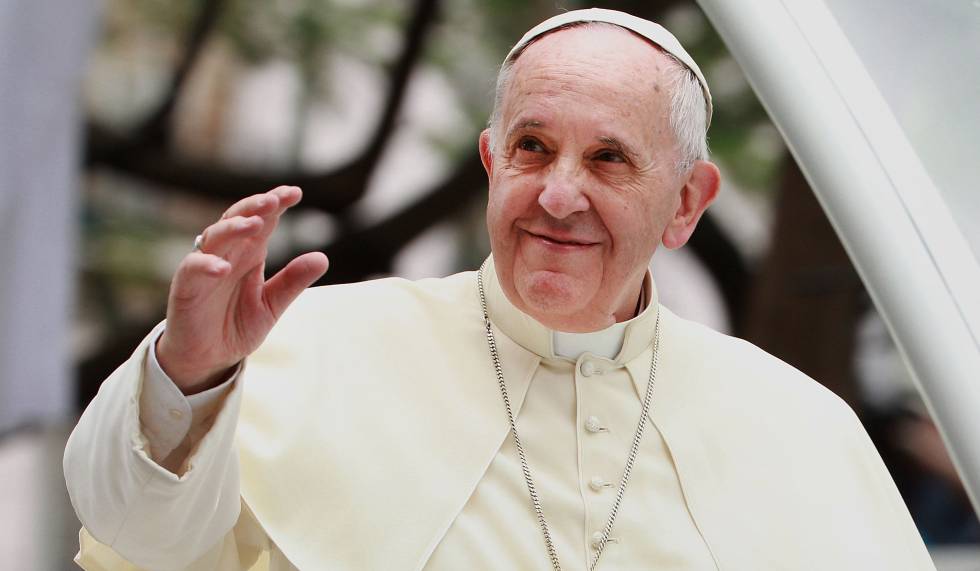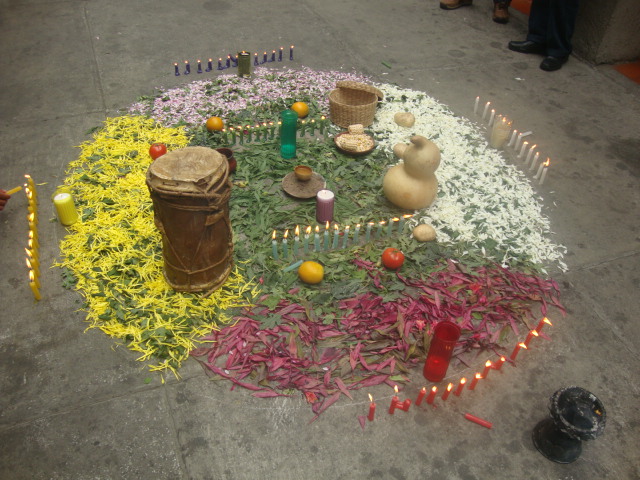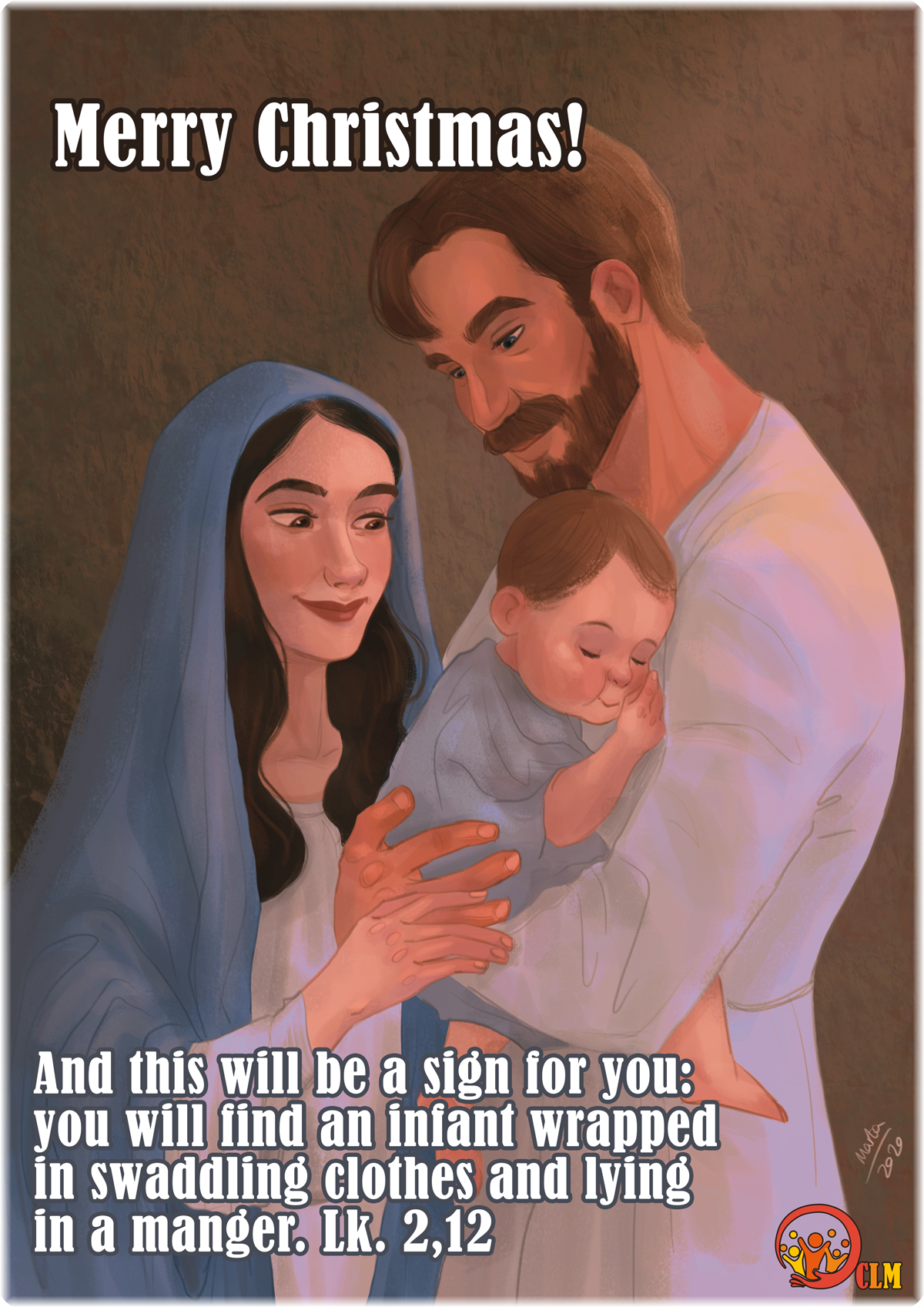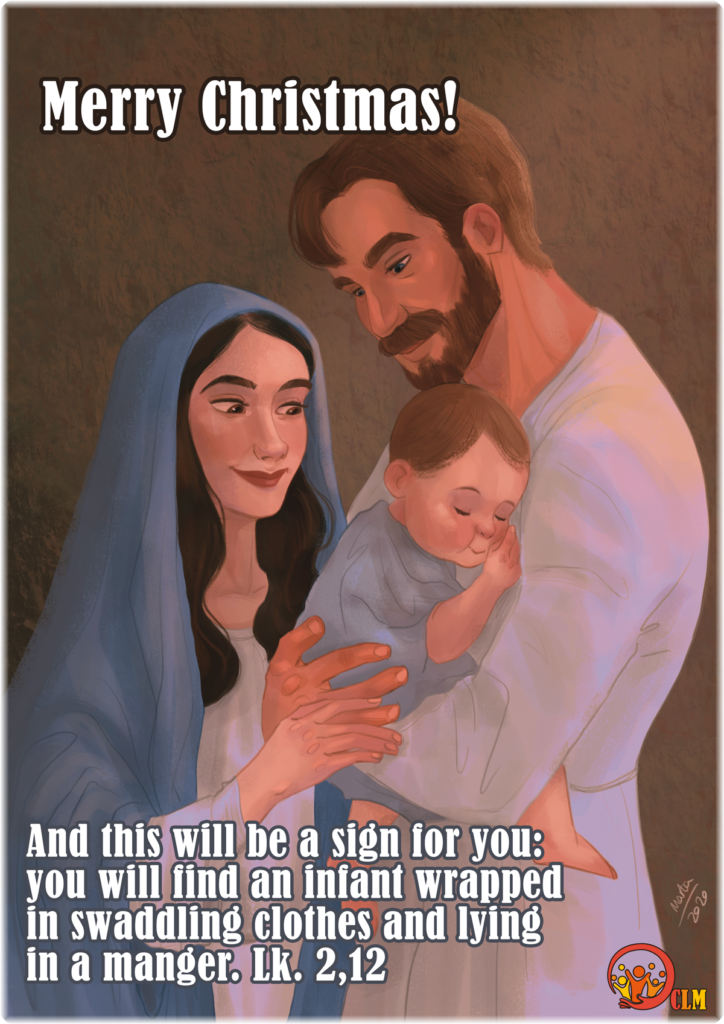“Behold, we are going up to Jerusalem” (Mt 20:18)
Lent: a Time for Renewing Faith, Hope and Love

Dear Brothers and Sisters,
Jesus revealed to his disciples the deepest meaning of his mission when he told them of his passion, death and resurrection, in fulfilment of the Father’s will. He then called the disciples to share in this mission for the salvation of the world.
In our Lenten journey towards Easter, let us remember the One who “humbled himself and became obedient unto death, even death on a cross” (Phil 2:8). During this season of conversion, let us renew our faith, draw from the “living water” of hope, and receive with open hearts the love of God, who makes us brothers and sisters in Christ. At the Easter vigil, we will renew our baptismal promises and experience rebirth as new men and women by the working of the Holy Spirit. This Lenten journey, like the entire pilgrimage of the Christian life, is even now illumined by the light of the resurrection, which inspires the thoughts, attitudes and decisions of the followers of Christ.
Fasting, prayer and almsgiving, as preached by Jesus (cf. Mt 6:1-18), enable and express our conversion. The path of poverty and self-denial (fasting), concern and loving care for the poor (almsgiving), and childlike dialogue with the Father (prayer) make it possible for us to live lives of sincere faith, living hope and effective charity.
1. Faith calls us to accept the truth and testify to it before God and all our brothers and sisters.
In this Lenten season, accepting and living the truth revealed in Christ means, first of all, opening our hearts to God’s word, which the Church passes on from generation to generation. This truth is not an abstract concept reserved for a chosen intelligent few. Instead, it is a message that all of us can receive and understand thanks to the wisdom of a heart open to the grandeur of God, who loves us even before we are aware of it. Christ himself is this truth. By taking on our humanity, even to its very limits, he has made himself the way – demanding, yet open to all – that leads to the fullness of life.
Fasting, experienced as a form of self-denial, helps those who undertake it in simplicity of heart to rediscover God’s gift and to recognize that, created in his image and likeness, we find our fulfilment in him. In embracing the experience of poverty, those who fast make themselves poor with the poor and accumulate the treasure of a love both received and shared. In this way, fasting helps us to love God and our neighbour, inasmuch as love, as Saint Thomas Aquinas teaches, is a movement outwards that focuses our attention on others and considers them as one with ourselves (cf. Fratelli Tutti, 93).
Lent is a time for believing, for welcoming God into our lives and allowing him to “make his dwelling” among us (cf. Jn 14:23). Fasting involves being freed from all that weighs us down – like consumerism or an excess of information, whether true or false – in order to open the doors of our hearts to the One who comes to us, poor in all things, yet “full of grace and truth” (Jn 1:14): the Son of God our Saviour.
2. Hope as “living water” enabling us to continue our journey.
The Samaritan woman at the well, whom Jesus asks for a drink, does not understand what he means when he says that he can offer her “living water” (Jn 4:10). Naturally, she thinks that he is referring to material water, but Jesus is speaking of the Holy Spirit whom he will give in abundance through the paschal mystery, bestowing a hope that does not disappoint. Jesus had already spoken of this hope when, in telling of his passion and death, he said that he would “be raised on the third day” (Mt 20:19). Jesus was speaking of the future opened up by the Father’s mercy. Hoping with him and because of him means believing that history does not end with our mistakes, our violence and injustice, or the sin that crucifies Love. It means receiving from his open heart the Father’s forgiveness.
In these times of trouble, when everything seems fragile and uncertain, it may appear challenging to speak of hope. Yet Lent is precisely the season of hope, when we turn back to God who patiently continues to care for his creation which we have often mistreated (cf. Laudato Si’, 32-33; 43-44). Saint Paul urges us to place our hope in reconciliation: “Be reconciled to God” (2 Cor 5:20). By receiving forgiveness in the sacrament that lies at the heart of our process of conversion, we in turn can spread forgiveness to others. Having received forgiveness ourselves, we can offer it through our willingness to enter into attentive dialogue with others and to give comfort to those experiencing sorrow and pain. God’s forgiveness, offered also through our words and actions, enables us to experience an Easter of fraternity.
In Lent, may we be increasingly concerned with “speaking words of comfort, strength, consolation and encouragement, and not words that demean, sadden, anger or show scorn” (Fratelli Tutti, 223). In order to give hope to others, it is sometimes enough simply to be kind, to be “willing to set everything else aside in order to show interest, to give the gift of a smile, to speak a word of encouragement, to listen amid general indifference” (ibid., 224).
Through recollection and silent prayer, hope is given to us as inspiration and interior light, illuminating the challenges and choices we face in our mission. Hence the need to pray (cf. Mt 6:6) and, in secret, to encounter the Father of tender love.
To experience Lent in hope entails growing in the realization that, in Jesus Christ, we are witnesses of new times, in which God is “making all things new” (cf. Rev 21:1-6). It means receiving the hope of Christ, who gave his life on the cross and was raised by God on the third day, and always being “prepared to make a defense to anyone who calls [us] to account for the hope that is in [us]” (1 Pet 3:15).
3. Love, following in the footsteps of Christ, in concern and compassion for all, is the highest expression of our faith and hope.
Love rejoices in seeing others grow. Hence it suffers when others are anguished, lonely, sick, homeless, despised or in need. Love is a leap of the heart; it brings us out of ourselves and creates bonds of sharing and communion.
“‘Social love’ makes it possible to advance towards a civilization of love, to which all of us can feel called. With its impulse to universality, love is capable of building a new world. No mere sentiment, it is the best means of discovering effective paths of development for everyone” (Fratelli Tutti, 183).
Love is a gift that gives meaning to our lives. It enables us to view those in need as members of our own family, as friends, brothers or sisters. A small amount, if given with love, never ends, but becomes a source of life and happiness. Such was the case with the jar of meal and jug of oil of the widow of Zarephath, who offered a cake of bread to the prophet Elijah (cf. 1 Kings 17:7-16); it was also the case with the loaves blessed, broken and given by Jesus to the disciples to distribute to the crowd (cf. Mk 6:30-44). Such is the case too with our almsgiving, whether small or large, when offered with joy and simplicity.
To experience Lent with love means caring for those who suffer or feel abandoned and fearful because of the Covid-19 pandemic. In these days of deep uncertainty about the future, let us keep in mind the Lord’s word to his Servant, “Fear not, for I have redeemed you” (Is 43:1). In our charity, may we speak words of reassurance and help others to realize that God loves them as sons and daughters.
“Only a gaze transformed by charity can enable the dignity of others to be recognized and, as a consequence, the poor to be acknowledged and valued in their dignity, respected in their identity and culture, and thus truly integrated into society” (Fratelli Tutti, 187).
Dear brothers and sisters, every moment of our lives is a time for believing, hoping and loving. The call to experience Lent as a journey of conversion, prayer and sharing of our goods, helps us – as communities and as individuals – to revive the faith that comes from the living Christ, the hope inspired by the breath of the Holy Spirit and the love flowing from the merciful heart of the Father.
May Mary, Mother of the Saviour, ever faithful at the foot of the cross and in the heart of the Church, sustain us with her loving presence. May the blessing of the risen Lord accompany all of us on our journey towards the light of Easter.
Rome, Saint John Lateran, 11 November 2020, the Memorial of Saint Martin of Tours
FRANCISCUS







